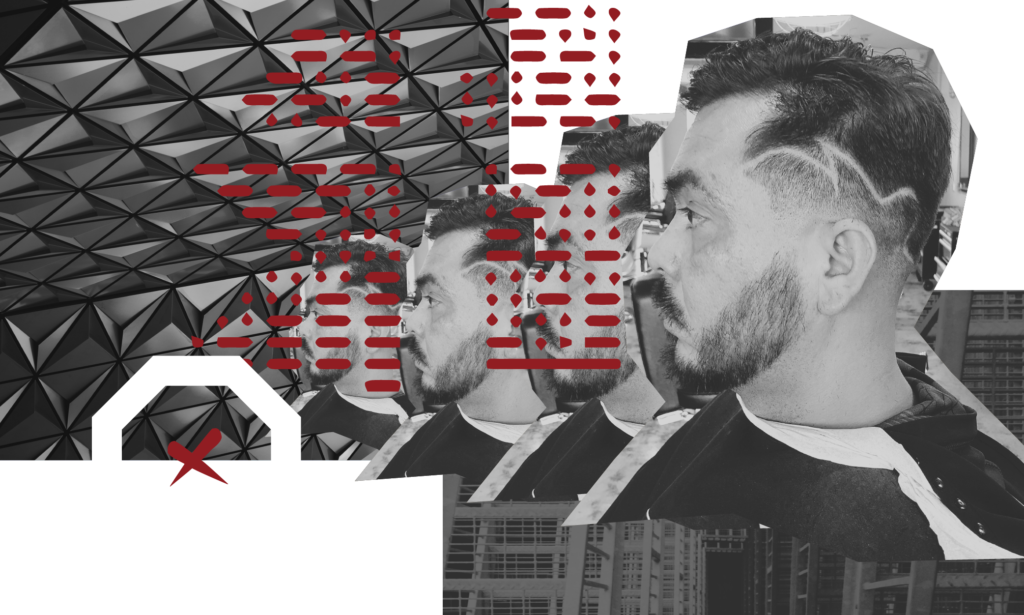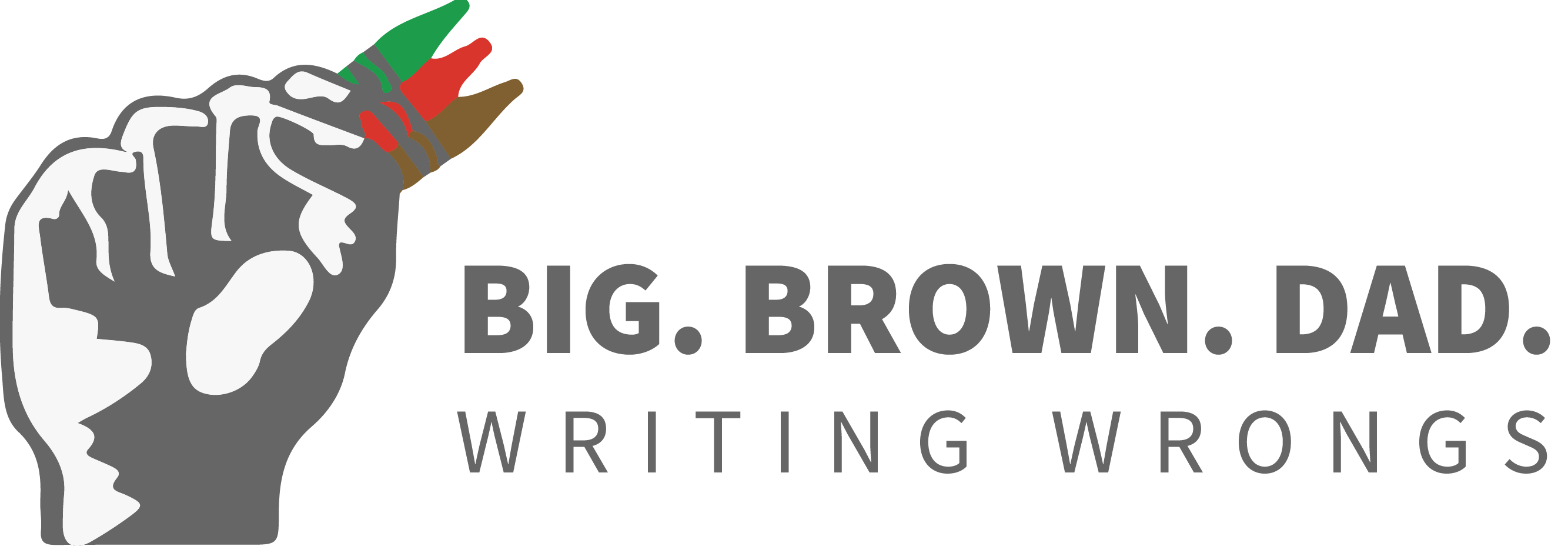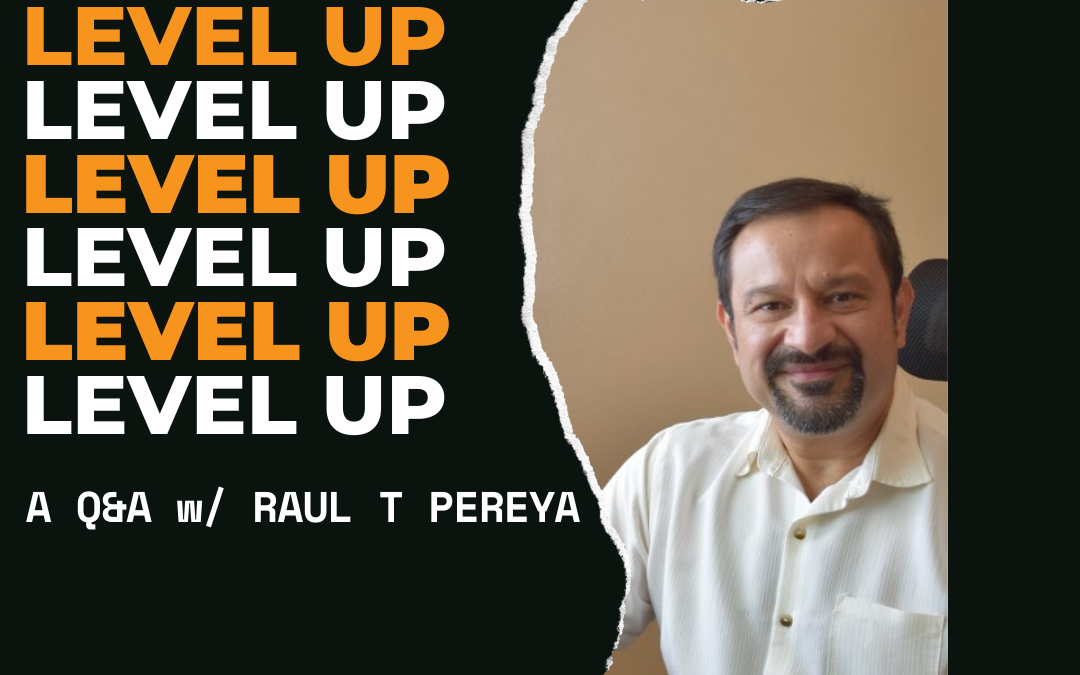In 2021, Big Brown Dad is commencing Operation Level Up (OLU). With OLU, I’ll introduce the Big Brown Army (er, ROTC) to people and ideas who can help us take our flow to the next level.
Today, I want you to meet Raul T Pereyra. Raul co-hosts Los Compas Lounge, a podcast for brown men, with a couple of his longtime buddies (and similarly upwardly mobile vatos). When he’s not producing his show, he runs an HR firm where he consults small businesses and non-profits.
And if you read till the end, you’ll see that he’s offered ONE LUCKY READER from the Big Brown Navy (er, militia) a FREE career audit that includes a 30 minute consultation and resume review, valued at over, I don’t know, what’s taking your career to the next level worth to you?
Take a look at my interview with Raul below:
1.Tell us about The Brown Compas podcast. What’s been your favorite episode to date?
Los Compas Lounge: a PSA for Brown Men is a podcast for Chicano/Latino men who are interested getting a weekly dose of laughs and encouragement for personal growth. We’re three Chicanos from East Los Angeles talking about issues that matter to you. Our mission is to serve our community by sharing experiences that inspire positive change.
This podcast is one way we are giving back and being of service to our community.
My favorite episode is Te Crees Muy Chingon with Your BA?! (because we talk about our experiences with “getting out” of East L.A. to better ourselves just to find ourselves struggling with issues of guilt and fighting off the “Mexican Crabs” who are ever present, pulling us down, and not allowing us to “escape” from the bucket that holds us all captive.
The “Mexican Crab” joke services as a metaphor that speaks to the mental road blocks we place on ourselves and the reality that many of us brown men face when we’re trying to better ourselves, getting an education, or succeeding in life only to be put down by our own people. “If I can’t get out… then you can’t either!” Take a listen! And I bet we’ll spark an engaging conversation in you or at least make you laugh!
- What do you think is missing in conversations around brown fatherhood?
The need for us men to let our guard down and be vulnerable when it comes to admitting that we were wrong in an argument or disagreement. That it is better to move closer towards building and maintaining healthy, positive relationships than it is for us to be angry or harbor negative feelings against others because we can’t admit that we were wrong. When we let go, the healing begins and we actually grow. We become the person we were meant to be. And that is a good place to be because we’re serving as role models for our children and teaching them what it means to be a real man. A man who is human and not afraid to show love, affection, and admit that he was wrong. There’s no shame in that. When you do it, you are liberated from the mental hang-ups you have been taught at home or through friends or indirectly through our cultural practices. I’m not talking shit about our culture or family. Instead, I’m bringing light to those things that do not serve us well as brown fathers. Those things which we can do away with or adapt to fit our new worldview as brown dads. A worldview which places us at the center of our families – at the center of providing a nurturing and loving home for our children.
- Tell us about your college experience.
I almost didn’t make it. Well I didn’t graduate from high school because I was too busy trying to be popular and partying it up. Then something clicked when I went to junior college. I met people who believed in me and this transformed my life forever. I was inspired. I had a hunger for knowledge and a deep desire to continue to grow intellectually.
Soon, I transferred to UC Berkeley with a razor-sharp focus on achieving my academics goals. And I did: I made the dean’s list and felt proud of my accomplishments. I met like-minded brown men and women in college and it was beautiful. We all shared a desire to be of service and support each other. I took these lessons with me to graduate school and beyond.
Today, I’m proud of who I am and my desire to be of service continues and is part of the lessons I teach my fellow brown brothers and sisters, and of course, my children.
- Tell us about your career trajectory.
While I was working on my MA in US History at UT Austin, I was working part-time as a youth development specialist in East Austin, Texas. I got involved in community youth development and I had a blast working with under served youth and their families. I saw that my work was important and making a real difference in the lives of those we served. It was rewarding. This experience led me to explore more work in youth development with non-profits making an impact in the community. I was off and running!
My early career was working for non-profits directly with you and as a youth development trainer. I also worked as an Adjunct US History Instructor for a LA community college, a Volunteer Coordinator and then a Human Resources Manager. I spent the longest time working in Human Resources and really embraced the field, earning a certification as a Professional in Human Resources (PHR) and most recently completing a certificate program in Diversity and Inclusion.
My career trajectory has always involved working with people as a mentor, facilitator, or teacher – making a difference in the lives of others. Now, I’m a Human Resources Consultant and work with non-profits and small businesses. I help them get their HR processes in order. I work 100 percent remote and I love it! I have a lot of flexibility and it works well with creating a work-life balance. I get to take care of my kids while making a living providing professional consulting services. I am living my calling. I make a difference in the lives of those that I serve.
5.What do most people get wrong about the field of HR?
Everyone is scared of HR. When you get called in to see HR, you immediately think that you’re going to get fired. It’s like that feeling you got when they called you into the principal’s office.
Although I’ve done my share of firing, I’ve done a great deal more. I’ve hired good people whom I trained and developed into exceptional employees and coworkers. I’ve supported the human capital and business strategies of business with fancy HR programs and initiatives. This is all to say that I’ve got involved in shaping the business of an organization by figuring out the best way to partner with employees so that they succeed and do good work and help advance the mission of the organization.
Make HR your friend. You are their internal client. Make a connection. Ask about training and development opportunities available to employees. Here are some questions you can ask when you meet with your HR rep/manager. What does it take to be successful in my role? What training opportunities do you have for employees? What can I do to make sure I’m doing the best work possible? Do we have a development program for employees seeking career development opportunities and support? Is there anything that HR can do to support my further development as a loyal employee? Does the company offer any tuition reimbursement or support of any kind for employees wishing to seek out formal educational programs? I’m interested in increasing my knowledge, skills and abilities to better serve the company – what can HR do to support this interest?
Employees are people. HR is about building and maintaining relationships with people. This is the part that I’m most passionate about. A lot of companies don’t get it. They treat their employees like trash – they see everyone as disposable and replaceable. This really sucks because we’re human and deserve to be treated with respect and dignity. So, for me, I only work with companies who “get it.” They “get” that people are the most valuable asset in their organizations and they take care of them. They pay them well. They support their career development. They give them flexibility. And they treat them like a real person – asking for their input and saying “thank you” often.
So if you want to succeed as a business, you need to treat people right. You need treat your employees like people. And this is where my flavor of HR lives. I provide a people-centered approach to human resource practices. I thrive when I get a chance to work with like-minded people.
- As Mexican-Americans, how can our choice in careers cause positive social change? Which fields are we needed most in?
A good friend once told me: “the more you know the more you owe.” So, if your goal is to create positive social change, then spend some time on working on you so you can get to a position of power, a position of influence. When you’re in that position, then you owe it to your people to give back. Bring others up. Pay it forward. Be the teacher, the mentor. Being a positive role model is powerful. This one thing alone makes a huge impact in the life of another person. And you begin to make a positive difference, one person at a time.
Think about it in terms of building relationships. Learn about networking and how you build professional relationships with your people. Don’t be afraid to take healthy risks and get out and meet new, like-minded people who will uplift you. Surround your self with positive people; people who are smarter than you or you aspire to be like.
Latinos are the fastest growing minority in the US and yet we are under represented in many professional fields especially in STEM. STEM (Science Technology Engineering Mathematics) careers are hot and in demand. We need more of you in STEM education and careers – like “pronto!” Demand in STEM careers will only continue to grow in the next 10 – 20 years.
What does this mean? It’s never to lake to increase your knowledge, skills and abilities in STEM. Why not? It may sound intimidating but it’s not. Begin the process of learning more about STEM and networking with STEM people and others interested in STEM – you’ll be surprised how many people are interested in this stuff! Get your kids interested in STEM – they’ll love it!
- What’s one thing someone who’s looking to advance in their organization can do during COVID to increase their likelihood of success?
You need to increase your knowledge, skills and abilities in Emotional Intelligence. I cannot over state this if your goal is professional development for the purposes of advancing in your career.
Daniel Goleman, wrote a book, Emotional Intelligence (1995), that made a big splash on the self-improvement/leadership field and continues to be a must read for you if you want to advance your leadership and communication skills. Take a look at Danile Goleman explain the concept on YouTube
- Tell us about the opportunity you have for one lucky bigbrowndad.com reader.
I’m offering a free 30-minute consult on career development and a professional review and feedback session on your resume/CV/cover letter. The 30-minute consult will allow you to tell me where you are in your career and what you want – are you looking for advancement, career change, coaching, etc.? And I’ll make an assessment and recommendations to get you on your way to get you closer to your career aspirations. The resume review involves my feedback and suggestions for improving your resume so that you are more marketable and stand out ahead of others.
TO ENTER THIS COMPETITION, GO TO BIG BROWN DAD’S IG PAGE, FOLLOW AND MESSAGE ME WITH THE PHRASE: LEVEL UP. I’LL SELECT A WINNER FROM THE BUNCH.
- Where can our readers learn more about your work and podcast.
I’d be honored to have you as a Compa! Please take a listen and subscribe to our podcast, Los Compas Lounge: a PSA for Brown Men
Learn more about my professional consulting at raultpereyra.com
Follow me at:
https://www.facebook.com/raul.pereyra.90/
https://www.linkedin.com/in/hrstoryteller/
IF YOU BELIEVE IN THE WORK I DO WITH BIG BROWN DAD, PLEASE CONSIDER SUPPORTING THE MISSION BY BUYING SOME OF MY COFFEE. WHEN YOU BUY MESTIZO, YOU HELP US KEEP THE COZY COLLECTION ALIVE.


